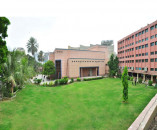Learning from the leaks
Except for embarrassing politicians with thick skins and diplomats with stiff upper lips, no lasting damage was done.

Diplomacy, often called a country’s first line of defence, adds to a nation’s security by improving its ties with other nations. Since a good part of it is practiced in the public domain, making a reasonable assessment of such relations is not too complex a task. This may partially explain why the ‘Great Leak’ did not make many earth-shaking revelations. In the odd case that it did, some principle of diplomacy had been violated.
‘Play hardball, speak little and concede even less’ is one. Those in important places should not be readily available to foreign emissaries. Jumping to every whistle from the diplomatic enclave leads to increasing whistles and decreasing worth. Beware of a visitor professing infliction from ‘localitus’; a diplomatic infatuation with the host country. The idea is to strike an empathetic cord and loosen clappers. Having someone around from the foreign office before one spilled too many beans was, therefore, a good practice.
The public has been the main beneficiary of these leaks. With its growing appetite to know what goes around, the leaks have helped it distinguish between policy and posture. If the Pakistan-US friendship mantra has to be recited ad nauseam, there must be a problem. And the problem does not lie with the Yanks. With all the Drones and Doles, they have made the nature of this relationship very clear: it is an alliance of convenience; more often of inconvenience. Even their ‘viceroys’ have pleaded — and not only in their cables — that they do not have the clout they are accredited with. Here, again, the leaks provide some consolation. Former empires and nouveau-riche kingdoms and sheikhdoms have not done much better.
Having preached the rule of law to the likes of us, Britain had to constitute an inquiry commission on Iraq; but with a caveat: go easy on the Big Brother. And our brethren in robes spend billions of dollars on arms but still ask the US to do their dirty work in Iran. Let’s not, therefore, judge the Pir of Multan too harshly for moving resolutions and then ignoring them. At least we know now what happened to the much hyped anti-terrorism bill unanimously adopted by the National Assembly in December 2008. It was dumped as directed.
Afghan leaks remain my favourite. They confirm what some here have vainly been suggesting for a long time: “watch out for the rogue groups”. Three thousand locals, trained by American forces as “counterterrorism pursuit teams”, were launched to carry out subversion on both sides of the Durand Line. The Tehreek-i-Taliban Pakistan may not have endeared itself to anyone here but not all the mayhem in the country was its handiwork.
And if the leaks can deter some of us from making a beeline for the Fort Alamo in Islamabad, I hope the pipeline never dries up.
Published in The Express Tribune, December 17th, 2010.



















COMMENTS
Comments are moderated and generally will be posted if they are on-topic and not abusive.
For more information, please see our Comments FAQ